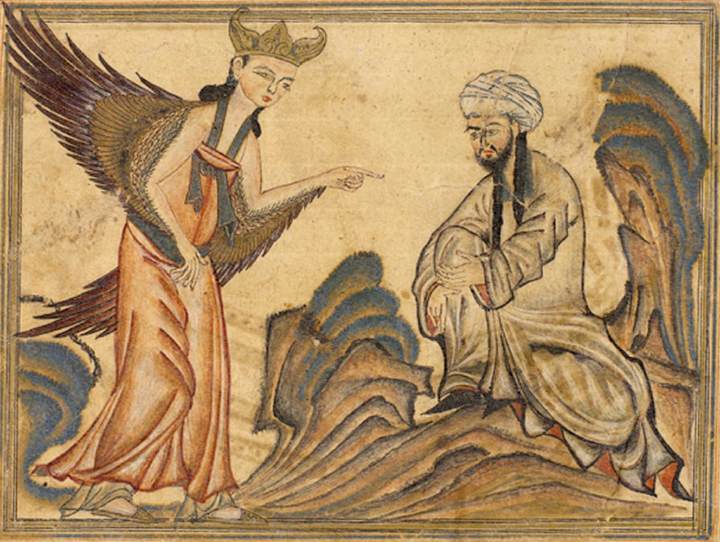What was the major Political significance of the Magna Carta?
It was the first constitutional document, that influenced the Constitution of the United States, and created three branches of government: King (executive), Parliament (Legislative) and Supreme Court (Judicial). A balance of power, moving away from a single powerful monarch.
What are the five elements of culture?
Food, Fashion, Religion, Music, and Language.
What were the two main resources being traded by the African Empires of Ghana and Mali. These riches would go on to make Mansa Musa the richest man in World History
Gold and Salt.
What do the following acronyms stand for:
- SAQ
- LEQ
- DBQ
SAQ - Short Answer Question
LEQ - Long Essay Question
DBQ - Document Based Question
Go to the whiteboard, draw a world map and illustrate the 3 different waves of civilization.
Show human migration on a world map with the first wave representing the Mesopotamian Civilizations of the Middle East (#Egypt, Sumeria, Israel, etc.), after migrating from North-East Africa. Then show the second wave and the civilizations of Europe and Eurasia (#Greece, Rome, Chinese Dynasties, etc.), and final show the third wave and the civilizations of the Americas (#Olmec, Maya, Aztec, and Inca).
What are the three Abrahamic Religions? What are the names of their sacred texts and what are their major beliefs?
Judaism - Torah and they follow the 10 commandments and believe the Messiah is still yet to come.
Christianity - Bible, which includes the torah and the Old Testament. Also follow the 10 commandments and believe that Jesus is the Son of God.
Islam - Quran and follow the teachings of Muhammad and the 5 pillars introduced to him by the Angel Gabriel.
Go to the whiteboard and illustrate and explain how human society moved from a hunter/gather system to a agricultural/farming hierarchical system
Settling next to water sources, farmers we able to grow more food than they needed to eat. So multiple farmers worked together to store food under the control of resource managers. Then in order to protect their resources farming societies formed armies, which where then lead by a general/King, therefore creating a hierarchical society.
What are the three sections needed in an complete SAQ?
Thesis Statement, Historical Evidence, and Analysis.
Compare and Contrast the three reasons for the collapse of Maya vs. the Aztec Empire.
Maya - Mismanagement of Resources, Sickness and Illness, and Internal Conflict.
Aztecs - External Conflict, Sickness and Illness, Advanced technology of the Spanish
What are the 5 major religions of the Southern, Southeast, and Eastern Asia?
Additionally describe were they are from and the differences of their beliefs.
Hinduism - India - Karma and Reincarnation.
Buddhism - India - Nirvana (Blissfulness) the absence of things and stress to achieve happiness.
Confucianism - China - Respect for elders, the past, and tradition.
Daoism - China - Dao, the way. Avoid politics and focus attention on individual human behavior and respect for those around you.
Legalism - China - Harsh punishments for crimes and respect of the law.
Go to the Whiteboard and illustrate the hierarchical structure of Feudalism. Additionally describe how the system benefits the lords and also the peasants.
King at the top gives land to the nobles/lords in return for resources, taxes, and levies. The Nobles/Lords give land to the Knights in return for resources, taxes, and levies. The knights provide land and protection to the peasants in return for resources and taxes.
Name and describe the 5 sections needed to complete an LEQ/DBQ?
1. Contextualization (Big Picture view of the world around the time of event.)
2. Thesis Statement (Argument Claim)
3. Historical Evidence (Historical examples related to the prompt.)
4. Analysis (Building a framework for the argument.)
5. Reasoning (Compare/Contrast - Continue/Change)
Go to the whiteboard and illustrate the similarities and differences between the Feudalistic Societies of Europe and Japan.
Additionally describe how the system of Feudalism works.
King/Emperor is at the top, followed by Noble - Lords/Shoguns, followed by Knights/Samurai, and finally Peasants.
The peasants give resources and taxes to the knights in return for protection, the Knights give resources, taxes, and levies to the Noble-Lords in return for Manorial Lands, the Nobles-Lords give resources, taxes, and levies to the Kings in return for Nobility Lands.
Go to the whiteboard and illustrate the different levels of the Indian Caste System. Additionally describe the religion this system falls under and what they believe in.
Bhramin (Priests/Academics), Kshatryia (Warriors/Kings), Vaishya (Merchants/Landowners), Sudra (Commoners, Peasants, Servants), Untouchables (Out-casts, sweet sweepers, criminals).
Falls under Hinduism and they believe in Karma and reincarnation (Good things will come to you in the next life if you are good in this life.)
What is the Chinese Kowtow System? What civilizations were a part of this system, how did this system work, and what were the four main resources found in this system?
The Kowtow System was a tributary system in which the civilizations of Korea, Vietnam, and Japan all accepted China's superiority and paid China tributes in the form of Silk, Porcelain, Tea, and Champa Rice.
What does the Acronym HIPPO stand for? And use it to dissect this image source

H - Historical Context
I - Intended Audience
P - Purpose
P - Point of View of the Author
O - Outside Knowledge.